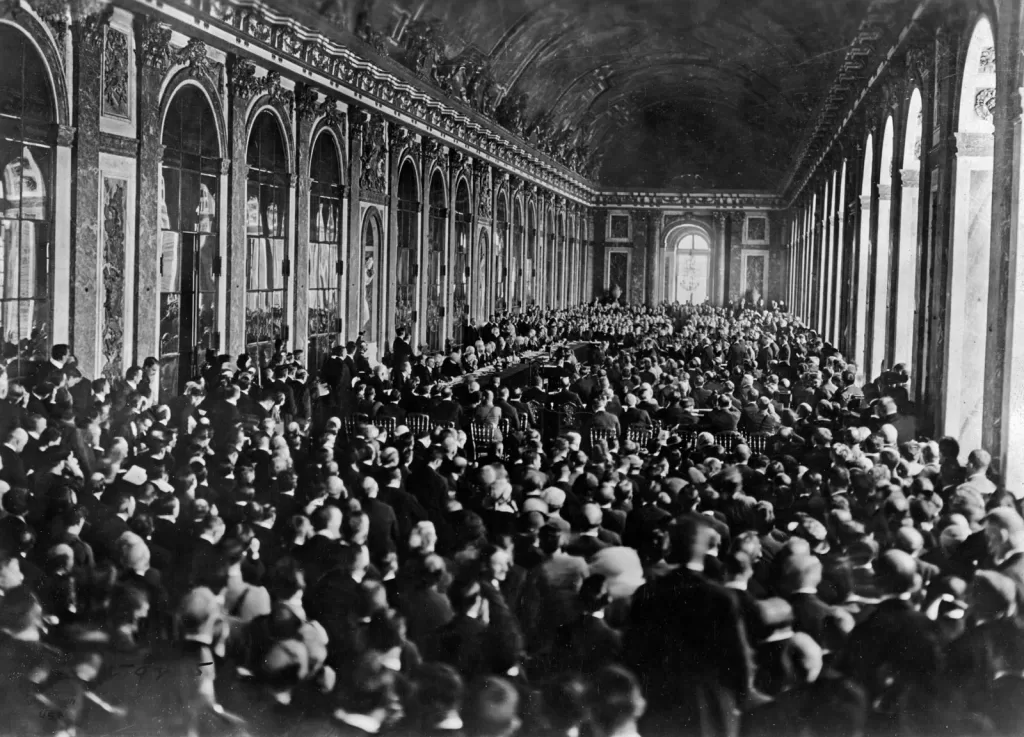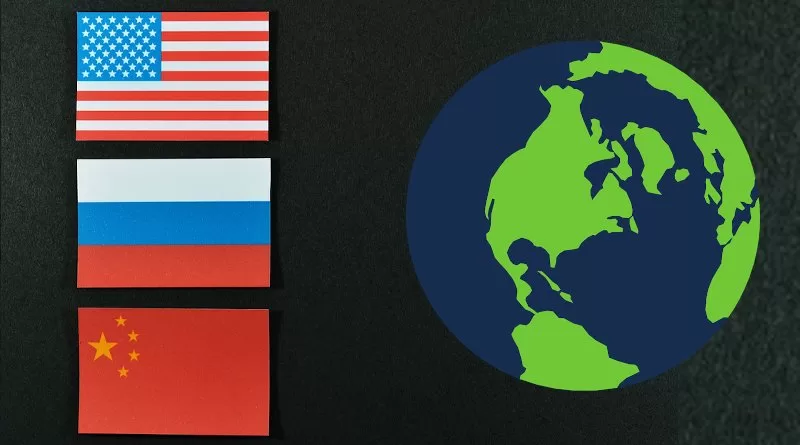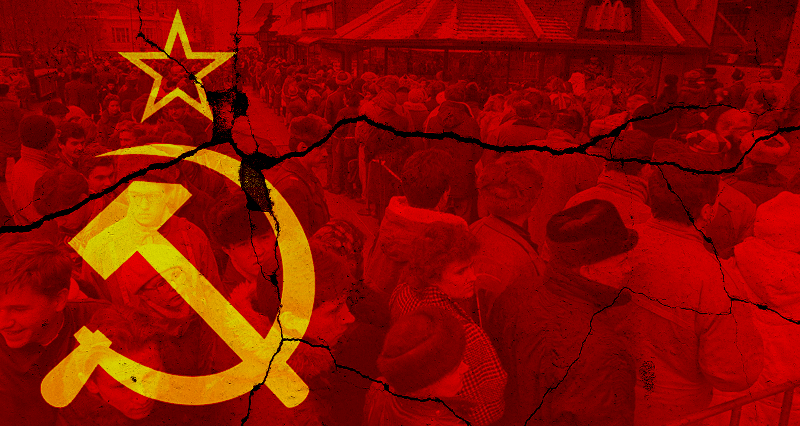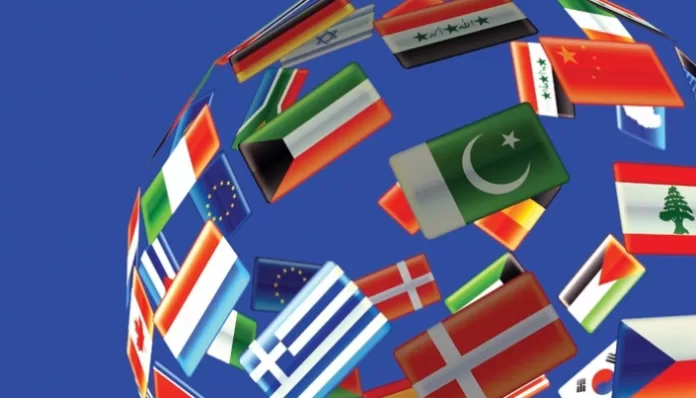The hegemonic structure of the international community has always been connected with the role and positions of great powers. It is fair to say that the great powers are the real masters of the destiny of smaller states and their people. It is possible to assume that the international structure of the post Cold War era would be basically determined by the distribution of power among the great powers. No power can single handedly accomplish its goals in the 21st century. The cooperation of great powers and the regional organizations has become essential. The old and unresolved problems with new challenges have come in the post Cold war era. The noteworthy problems after 9/11 are international terrorism, organized crime, Iraq and Afghanistan. New composition of the factors dominating the world scene required to resolve these problems. Several events took place during the period between 1991 and 2009. These events provide essential information to make projections on the possible structure of international system. In light of these events a major new alliance is emerging among China, Russia and Iran. It can undermine US ability to pressure Tehran on its nuclear programme and support for extremist groups. These three countries have very strong economic, military and political ties.
China is increasing relations with Russia to conclude a new supportive agreement that seeks to shape a fair and democratic world order. Russia and China is also now seeking to develop a strategic partnership and they want to move beyond their aggressive Cold War relationship. Russian energy ties and considerable arms sales to China have also sought to strengthen their bilateral relationship.
On the same footing, the Iranian government has made improvements in economic and political relations with China with a sustained policy. It is now one of the main trading partners for Iran supplying billions of dollars worth of transportation, energy and military equipment to Tehran. Iranian government now counts China as one of its main supporters in the international arena.
Similarly Tehran-Moscow relationship is basically commercial, as witnessed by arms deals and the nuclear issue. But there is also a general policy dimension on the part of both that they do not accept the US influence in the region. Russians want to express that they are independent from the US in their policy towards Iran. That is very clear on weapons and nuclear issues. Russia and Iran also share a common interest in limiting the political influence of the US in Central Asia. This common interest has led the SCO to extend to Iran observer status in 2005, and offer full membership in 2006. Iran’s relation with the organization, which is dominated by Russia and China, represents the most extensive diplomatic ties among the three.
The China-Iran-Russia axis is also challenging for US interests in Central Asia. While the US is working feverishly to gain security footholds in Tajikistan and Kazakhstan to complement existing US military bases in Afghanistan, Uzbekistan and Kyrgyzstan. China and Russia are working equally hard to assert their influence in Central Asia, particularly under the auspices of the SCO. Iran’s mammoth energy deals with China imply that Tehran is now integral to China’s national security.
Additionally, Beijing’s expanding foreign relations both within and outside the China-Iran-Russia alliance and China’s growing militarism have begun to repaint Washington’s perceptions of US-China relations. These perceptions have been echoed by Washington’s closest allies in Asia – Taipei and Tokyo.
These relations are based on mutual interests. These three powers are against western hegemony in the world politics. They want to create a new world order. Their view point on different issues of world politics is same. They are backing each other on international level.
In the contemporary world one can believe that no power can accomplish its goals without cooperation with others, but the hegemonic structure of the international community has always been connected with the role and positions of great powers. This was evident in particular in the 19th century. Europe was the main theatre for such operations, while Africa and Asia were the areas of their expansions in the colonial sense. The US had not played any significant role outside the American continent. In the first half of the 19th century the great powers were united in the so called Holy Alliance which was greatly responsible for the European destiny.3
The coalition of the European powers was engaged throughout the century. It was found either in mutual rivalry or in commonly deciding the assemblage of Europe. England was concerned mostly in preventing any other continental power to obtain a dominant position in the European affairs. It was establishing herself as a colonial power in other regions. No multilateral or regional organization existed at that time. It is fair to say that the great powers were the real masters of the destiny of smaller states and peoples. Then in Germany and Italy the national unifications were taking place whose consequences would be felt later.4
It was assumed in the beginning of 1990s that international and regional organizations would play a very influential role in regulating international politics. Later developments revealed that international and regional organizations would actually dominate world politics. The reason was that they could act contrary to the national policies of the states even in the name of common interests. These developments show that common international interests among the states supported by the liberal standpoint will not come into being in the short term. In other words states act with regard to their national interests and even though they have cooperated under certain circumstances. But they do not have an intention to constitute the long term common interests. It is possible to assume that the international structure of the post Cold War era would be basically determined by the distribution of power among the great powers. Several events emerged during the period between 1991 and 2012. These events provide essential information that may be used to make a projection on the possible structure of international system.
Changed Global Scenario
The 20th century has been unique in modern history. The structure of international politics remained multipolar for the last three centuries. It has changed three times in the 20th century. It became bipolar after the Second World War. There was another change with the disintegration of the Soviet Union and as the new millennium dawns it is gradually becoming multipolar once more.5 The role of great powers on the international scene had significantly changed in the 20th century.
The World War I had brought about the collapse of three empires. This war also helped the US to emerge as a new major power. The famous 14 points of President Wilson became founding stone for the constitution of a number of nation states and the liberation struggle of those nations.
There were some incidents which brought quick changes in the world order. These were Russian revolution, the Treaty of Versailles and the creation of the first political institution of universal nature, the League of Nations. These were together decisive factors in the world order. Europe had remained the central point of the world. The League of Nations was dominated by European powers. The reason of European dominance was isolationist policy of the US after the World War I. It should also be noted that the concepts of self determination of peoples and equality of nations had emerged on the international scene.

World Order after the World War II
The Second World War further contributed to the changes in international relations. Europe lost its primary place and influence in the world affairs. The US and Soviet Union took over as superpowers. The fascist powers Germany and Italy were defeated. On the other hand England, France and China remained in the circle of great powers, but these powers were significantly weakened and gradually loosing their colonies.6
The League of Nations collapsed before the Second World War. The victorious powers created new universal organization the United Nations. The US and Soviet Union were the leading powers. The great powers determined that the Security Council shall consist of five great powers as the permanent members and of seven non permanent members. The permanent member states should enjoy the right to veto any decision of this organ. Therefore, a status of privileged membership in the UN was created setting aside the UN’s basic norms i.e. sovereign equality of its members, their independence and territorial integrity, the protection of human rights and basic freedoms, the prohibition of genocide, apartheid and racial discrimination, etc. This status has influenced the whole life of the world organization.
Meanwhile, the way for decolonization of colonial peoples and countries was opened. The UN had been encouraging these processes and accepted emerging independent states as its new members. But somewhat contradicting structure of international organization had been created. On the one side the Security Council was dominated by its permanent members and on the other hand the General Assembly comprised all member states that in fact could make only recommendations.
Bipolar System during the Cold War
The world was divided into two poles during the Cold War period. There existed a number of military political alliances beside the UN. The most important were two blocs; NATO and Warsaw Pact. There was constant confrontation during the Cold War between both blocks and they influenced the world politics more than the UN.7 Due to the paralysis of the Security Council, the UN founded an alternative peace instrument i.e. the peace keeping operations. But, the fact is that the burden regarding the international security and the world peace rested upon the balance of the forces of two major blocs.
World Political Order at the End of 20th Century
The international situation radically changed after the end of the Cold War when the collapse of Soviet Union and overthrow of the communist regimes in Eastern Europe occurred. The US emerged the sole superpower and Russia succeeded the Soviet Union, but with much weaker position. In Europe, there was rise of various institutions of integration, in particular the European Union.8 It was somewhat a peaceful transition of world order when UN revitalized to some extent after the Cold War and the Security Council started to function more effectively.
This peaceful transition, accompanied by a process of economic stabilization has opened new perspectives at the end of the 20th century. But now there are new crises and serious problems that are posing challenges for the UN and the world as a whole. The present world is more united and interdependent due to information technology and globalization. But the power structure including UN appears to be in some instability. The world peace has been preserved. There are new conflicts and threats to peaceful development in addition to the inherited and unresolved problems. The protection of human rights and democracy has been progressing on the world scale. On the other hand inequality and poverty remained and the gulf between industrialized and developing countries seems to be deepening.9 International terrorism and organized crime became new concerns of the international community. Two problems have acquired new dimensions and are preoccupying the UN and the world community as a whole:
• The relationship between unilateralism and multilateralism
• The humanitarian interventions by force versus national sovereignty
The US is prepared to intervene unilaterally whenever it deems it necessary even without the authorization of the UN Security Council. On the other hand, other powers demand the establishment of a system of multipolarity. Another similar question is the concepts of humanitarian intervention despise the national sovereignty. Usually, a humanitarian intervention is justified by massive violation of human rights, which are protected by international law, being superior to domestic jurisdiction. So, the authoritarian regimes cannot any longer hide behind national sovereignty. Naturally, humanitarian intervention should not cover any possible other intension of foreign dominance10 i.e. also the tendency of spreading nuclear weapons or those of mass destruction is very dangerous.

Present Political World Order
The position of the US in the international community is that of the sole superpower especially in the military and technological sense. Other powers are no match for the US or are rather the second class powers in particular after the termination of Soviet Union. There are two categories of such powers:11
• The old four-the permanent members of the Security Council
• Other significant large states
China and Russia are no longer regarded as the enemies of the West. They are now considered as the partners in some areas and competitors in others. In the Security Council all permanent members are nuclear powers. But they possessed potentials of different degrees. The US has the greatest potential and then comes Russia. China is trying to increase its nuclear capability with a fast development. France and Great Britain are lagging behind. Here we also have to add new powers like Germany and Japan. They have not nuclear weapons but otherwise strong and influential. Many observers see a shift from a US dominated international order toward a multipolar system. China, Russia and several others shall compete for global leadership on a range of common challenges and risks in this multipolar world.
It is necessary to include India and Pakistan as nuclear powers and large states. In this group could be included North Korea and Iran as potential nuclear states.12 Other group of states that could be regarded as important in a political and military sense is Israel, Brazil, Canada, Australia and South Africa. On the other hand big regional associations such as NATO, European Union and possibly ASEAN could be regarded as military significant groupings. This whole hegemonic structure could be described as unilateral and relatively could be compared with that of Roman Empire. Regarding other attributes of great powers, especially in the economic and financial filed, the situation is rather different. The US is also a dominant factor in economic matters but it is not alone in this race. Other powers like Japan, Germany and regional associations as European Union or ASEAN have considerable influence and potentials.13
Changing Power Centers in the World Politics
China is a specific case in this changing world political order. It is particularly interested in the Asian affairs. It is trying to rank among the most important powers politically and militarily. It is also competing for the status of a partner with the strongest.14 The US has achieved military victories in Afghanistan and Iraq as the sole superpower. But it has not been able to ensure the stabilization and peaceful development in these states. As well as the general reconstruction and democratization of those countries are big tasks ahead. The US needs more cooperation of other powers and regional organizations, like NATO and European Union. The US also needs more engagement of the UN.
Therefore, it is a period of transition. On the one hand US is the superpower especially in military and technological capacities. It is also emerging in various forms of a system of multipolarity in international relations. On the other hand, UN with its Security Council as well as regional institutions are at the center of these trends. In these regional institutions the most important and influential are NATO and EU. In the same circle, independently or individually other powers like Russia, China, Japan, Germany and other large states, primarily relevant in a regional context.15
Great Powers and World Political Order
Russia, the United States, China and the European Union do not fulfill the requirements of being a great power as defined by the realist perspective. This is because they do not have military, political and economic capabilities. They also do not force their allies to act in favor of their policies. The great powers do not pursue such a global policy that aims to reshape the international system except the US. But they still have an ability to directly affect the regional and world politics.16
Due to this particular reason, other countries should take their attitudes and considerations into account when formulating their foreign policies. It is not possible to say that the great powers can truly impose their hegemonies in world politics or constitute their regional hegemony within the multipolar structure.
Russia, China and the European Union propose the establishment of multipolar international system, while only the US supports the unipolar structure. Russia and China are taking care to have strategic relations with other countries in order to balance the growing power of the US. But in the course of time the international system is moving from a unipolar structure to a multipolar one. The US military operation against Iraq in 2003 and the decrease of the US economic capability particularly expose the impossibility of formation of unipolar system and formation of the US hegemony.
Multipolar system does not mean the polarization among the major powers where there is brutal competition among them. It is not possible to see such kind of competition in world politics because inter state relations are based on mutual interdependency. The great powers are competing with each other. But on the other hand they have mutual relations based on their national interests and their individual needs. China needs US financial assistance and its high technology and Russia’s energy resources. The US wishes to see more American investments in the Chinese market. On the other hand, China and Russia do support multipolarity to balance the US. But they do not want to dominate the world politics. Consequently, they assume that they can have more stable relations with the US, Japan or other rivals.17
It is also not possible that the great powers can form their regional hegemonies within their own regions. They do not force other regional countries to accept their will or to act in favor of their foreign policy understanding. For example, Turkey is strengthening its relations with Iran in spite of US objection. The Central Asian and Caucasian countries have close relations with the Western countries despite of Russian apprehensions.
The military subjects, economic and social relations are also occupying a specific place in the international relations. But non state actors are playing more effective role in the world politics. Today economy and energy resources are the vital issues for the states. For example, for China, staying away from the energy resources threatens its economy. Therefore, China has maintained close relations with Iran without caring of huge pressure by the US. The Chinese market also creates new opportunities for European and US multinational companies.

Conclusion
World order has changed many times after the advent of new political system of government. It has changed from multipolar to bipolar world at the end of World War II. World has been changed into unipolar after the disintegration of the Soviet Union. Keeping above discussion in the view, it can be concluded that once again world order is moving towards another change. In this regard role of China, Russia and Iran is very important in contemporary world politics. They are bounded in strong relations historically. Their relations started from incent times on influential bases. China, Russia and Iran continue to enhance their relations in contemporary world. They gave new shape to their relations according to the needs of present time. Their cooperation in the fields of trade, energy and military is very strong and visible to all. Their cooperation is enhancing day by day instead of the US and Western opposition. China, Russia and Iran also maintain unanimous view point on all regional and global issues. They cannot accept the US hegemony of the entire world. They are also worried about the presence of NATO forces in Afghanistan. They challenged the US influence in the Central Asian states. China, Russia and Iran are working on single currency in SCO member countries which shall also be big blow for the US economy.
After studying the relationship among China, Russia and Iran, one can conclude that there are many common areas of partnership among these three states. Primarily these relations are related to economic, energy, political and military. But it can also be assumed that China and the US will come in head to head competition on the economic front in near future. There will not be a hot war but cold or cool wars between them. The US, Europe and Japan share one pole, and China, Russia and Iran share another pole and they will compete.
End Notes
3Michael Mandelbaum, The Dawn of Peace in Europe, (New York: Twentieth Century Fund Press, 1996), p.134
4Ibid, p.143
5Michael Brown, “The Flawed Logic of Expansion”, Survival, (vol. 37, no.1), spring 1995, pp. 34–52.
6Charles W. Kegley, Jr, “The Neoidealist Moment in International Studies? Realist Myths and the New International Realities”, International Studies Quarterly, (vol. 37), June 1993, p. 139.
7Glenn H. Snyder, Alliance Politics, (Ithaca: Cornell University Press, 1997), p.192.
8Steven Erlanger, “A War of Numbers emerges over Cost of Enlarging NATO”, New York Times, 13 October 1997, p. A1.
9Georg Simmel, “The Sociology of Conflict”, American Journal of Sociology, (vol. 9), January 1994, p.501.
10Ibid, p.522
11Michael R. Gordon, “Russia–China Theme: Contain the West”, New York Times, 24 April 1997, p. A3.
12Barry R. Posen, “U.S. Security in a Nuclear-Armed World or: What if Iraq had had Nuclear Weapons?” Security Studies, (vol. 6, no.3), spring 1997, pp. 1–7
13John McCain, letter, New York Times, 28 March 1994, p. A10
14Nathan and Robert S. Ross, The Great Wall and the Empty Fortress: China’s Search for Security, (New York: W. W. Norton, 1997), p.178
15Richard Bernstein and Ross H. Munro, The Coming Conflict with China, (New York: A. A. Knopf, 1997),p. 125
16The Military Balance, 1997/1998 (London: International Institute for Strategic Studies, 1997), p. 293
17Nathan and Robert S. Ross, The Great Wall and the Empty Fortress: China’s Search for Security (New York: W.W. Norton, 1998) ,Pp.185-90
Contribute by:
Malik Faisal Abbas
Faisal Abbas holds M.Phil Degree in Defence and Strategic Studies from Quaid-i-Azam University Islamabad. He is also Director Bright Vision Institute, Sirgodha.




